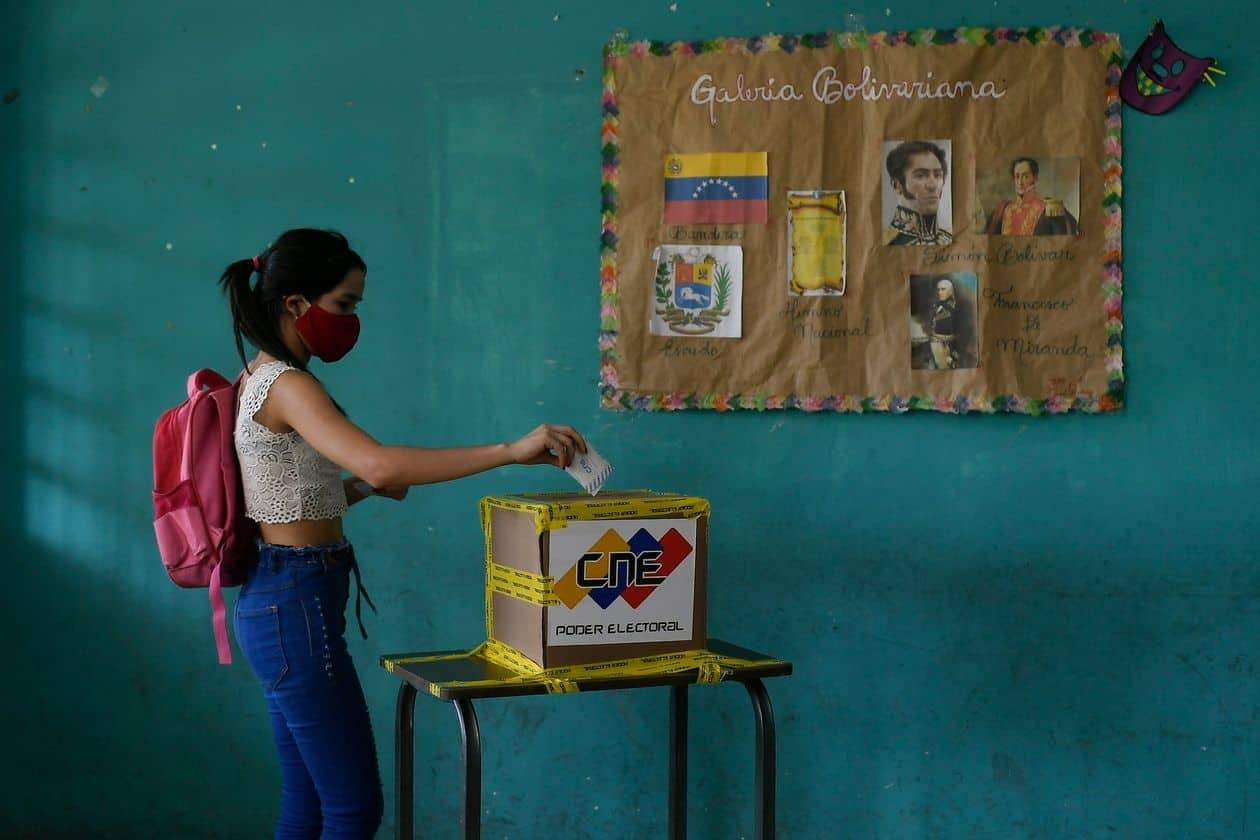Venezuela’s Maduro Tightens Grip as Opposition Boycotts Elections

Venezuela’s authoritarian regime staged congressional elections Sunday that were expected to give President Nicolás Maduro complete control of all levers of power in a vote the country’s opposition and its supporters, including the U.S., rejected as fraudulent.
Until now Venezuela’s single-chamber congress, the National Assembly, had been the only government body under opposition leadership. But with Mr. Maduro’s regime having handed control of opposition parties to allies and exiled or jailed prominent adversaries, most opposition leaders called on their countrymen to boycott the vote in protest even if it meant the regime would dominate all of government and the armed forces.
The outcome has never really been in doubt in a country whose government is closely allied to Communist Cuba, Vladimir Putin’s Russia and Iran. Except for a few breakaway candidates not allied with Mr. Maduro, ruling party politicians are expected to take the vast majority of the 277 seats in the National Assembly.
“Venezuela’s electoral fraud has already been committed,” U.S. Secretary of State Mike Pompeo said Sunday afternoon on his official Twitter account. “The results announced by the illegitimate Maduro regime will not reflect the will of the Venezuelan people. What’s happening today is a fraud and a sham, not an election.”
As in recent elections in Venezuela, there were no traditional international monitors, and the members of the electoral council had been chosen without the participation of Mr. Maduro’s opponents. Venezuelans have also expressed distrust in the voting system, which in 2017 was rocked by allegations of fraud after the London-based company that provided electronic machines, Smartmatic, said the regime had doctored a million of the 8.1 million votes cast in an election.
For Venezuela’s opposition, the strategy on Sunday wasn’t to win votes but rather spur apathy and demonstrate to the world that there was little activity at polling sites or confidence in the election. Participation was in marked contrast to the 2015 vote for National Assembly, when participation topped 70% as Venezuelans gave the opposition control of two-thirds of the body.
“What we have in 2020 is a fraud that you can see in the streets and that contrasts with the struggle to elect [our politicians] as we did in 2015,” opposition leader Juan Guaidó said. “Today we stayed at home.”
In a morning tour of seven polling stations in greater Caracas, fewer than a dozen people were waiting to vote at each station—a dramatic drop from the elections earlier this decade and in the 2000s, when participation in Venezuelan elections meant long lines and most of the electorate casting ballots.
“I didn’t go to vote because this is a farce,” said Carmen Bermudez, a 56-year-old designer.
She said she was outraged that the traditional leaders of opposition parties such as First Justice and Popular Will had been replaced by politicians doing the regime’s bidding. “I don’t know any of the candidates participating for the opposition,” she said. “I decided to stay at my workplace trying to survive.”
Another voter, Elisa Suárez, 46, said participating in the vote would have been akin to legitimizing Mr. Maduro. “In my family nobody went to vote,” she said.
Boycotting the vote, though, also presents problems for an opposition that is ever weaker and fractured between those who are open to negotiating with the regime and others who favor a hard-line approach in the hope that the U.S. will use military force to dislodge Mr. Maduro.
Though the U.S., the European Union and leading Latin American countries consider the vote a charade, one clear outcome is that Mr. Guaidó will no longer be president of the National Assembly when the new body takes power Jan. 5. More than 50 countries consider Mr. Guaidó, and not Mr. Maduro, as Venezuela’s legitimate leader. But his claim is grounded on his being the head of the National Assembly.
Mr. Maduro and his allies have also encouraged voter participation by telling Venezuelans that a new National Assembly would find mechanisms permitting private companies to export Venezuelan crude, which has been hobbled by Trump administration sanctions that have battered the economy. Indeed, some Venezuelans who voted said that they hoped that with a new National Assembly offering investment opportunities, foreign companies could be lured to make investments and reactivate the economy.
“There’s nothing left to do but vote,” said Julio Guanipa, 46, a mechanic. “Sanctions have caused us much pain. We want things to return like they were before.”
Maigualida López, a 59-year-old vendor who voted, said that she hopes Venezuela will make an economic recovery so that her small grandchildren will have fruitful lives.
“In addition to that, I’m used to voting,” she said. “I have always done it and won’t stop until I die. I think it’s possible to change all the bad things that sanctions have brought us.”
Photo: A voter in Caracas cast a ballot on Sunday during elections to choose members of Venezuela’s National Assembly. - MATIAS DELACROIX/ASSOCIATED PRESS
Link: https://www.wsj.com/articles/venezuelas-maduro-tightens-grip-as-opposition-boycotts-elections-11607296455











